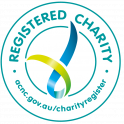What is the Gippsland Family Law Pathways?
The Family Law Pathways Network is an Australia-wide group of pathway officers tasked with enhancing connection between the legal side of Family Law and the family resource organisations. These organisations include family-law experts, family dispute resolution practitioners, mediation and counselling practitioners; and other support services assisting family’s facing separation. Each Family Law Pathways Network officer is responsive to their own region and endeavour to support the local nuances of family-legal and community-support sectors through providing training opportunities and networking for integrated professional development that are relevant to the multisector.
These podcasts assist people engaging in family law processes to better understand the sector and its intersecting services. Across-sector legal and family support professionals working with clients who are seeking to understand how judgements are arrived at in the Family Court & Federal Circuit Court may find this resource useful to utilize with their clients. This resource will help people better understand the full scope of service roles across the family law sector. This resource features the unique drumming compositions of Professor Bruce Smyth from the Australian National University who contributes to the quantitative research relevant to policy formation across the Family Law and supporting sectors.
A welcome message from Lynne Haultain from the Victoria Law Foundation
Family Law Pathways Podcasts
Insights from a Researcher with the Australian Institute of Family Studies with Rachel Carson
In this overview of research into child and youth experience with the family Law and relationship resource supports, Rachel Carson from the Australian Institute of Family Studies discusses the challenges young people face when engaging with systems, processes and professional staff who are assisting parents through separation in the Family Law and Federal Circuit Courts. The topics outlined here include survey results and interviews indicating how children felt throughout the separation process and their responses to supports, or lack thereof, facilitated by legal and relationship support practitioners.
(The information at the 8 minute 22 second mark has been amended to: ‘In relation to family law system services, most, in fact around two thirds, wanted professionals to listen more effectively to their views and experiences. They wanted to be provided with safe and effective options to participate in the decision-making process should they wish to do so.’)
If you are a practitioner working with parents who are trying to reach agreements regarding custody, visitation and varied arrangements between children and their parents this podcast will be a valuable resource for you.
The Role of a Family Dispute Resolution Practitioner with Tina McCarthy
A Family Dispute Resolution Practitioner is an independent person who helps people experiencing separation or divorce to resolve their parenting disputes. FDR practitioners in Victoria take a child-centred approach. This podcast will outline the client focused procedures organised by an experienced family dispute resolution (FDR) practitioner. During this discussion practitioner Tina McCarthy explores some of the techniques used in assisting parents who are coming to terms with a separation, to keep their children in focus during the process.
A Judge’s Reflection with Former Judge Judith Small
Former Judge Judith Small has given this interview in her role as a Judge of the Federal Circuit Court in Victoria. Former Judge Small became a family court judge “ …to assist people at times of crisis in their lives, and I am always mindful that with every privilege comes responsibility.” In this podcast Former Judge Small discusses her experience of applying the law, detailing how family law judgement decisions are made and how the federal circuit court operates. Judge Small expands on some key cases, such as the ground breaking Re Andrews case and events that have shaped her career and influenced the current family legislation in Australia.
From the Perspective of a Family Lawyer with Grania Sheehan
In this podcast, family lawyer Grania Sheehan discusses the technical nature of legal procedure in the context of the Federal Circuit Court and how the law is applied in family separation cases. Exploring the role of the independent children’s lawyer and the scope of family law jurisdiction, Grania examines the difference between the function of family law and that of the family resource sector, specifically how these two sectors operate for the client and how they can best work together to the benefit of individual, families, and children.
From the Orange Door with Carmel Hennessy
In this podcast Carmel Hennessy explores the Victoria’s state wide Orange Door initiative in response to family violence. The Orange Door, it’s structure and policy development have been influenced by the activism of Rose Batty in the wake of the death of her child, Luke Batty, at the hand of his father in 2014. Carmel speaks specifically of the Orange Door hub in Morwell, Gippsland, as a support solution to assist people experiencing family violence in the Latrobe Valley and greater Gippsland region. Carmel outlines the processes, protocols, and functions of the Orange Door as well as discussing employment potentials located in the service.
About our podcast guests
Dr Rachel Carson
Dr Rachel Carson is a socio-legal researcher with expertise in family law and qualitative research about family law disputes. Rachel was the lead researcher for the recently completed Children and Young People in Separated Families: Family Law System Experiences and Needs project, and the Direct Cross-examination in Family Law Matters Study. Rachel is currently the project lead for the Evaluation of the Small Claims Property Pilot in the Federal Circuit Court and she is also working on the Evaluation the Legal Aid Commission Trial of Lawyer-assisted Property Mediation. Rachel has contributed to research undertaken for the Royal Commission into Institutional Responses to Child Sexual Abuse and to the work of the Institute’s Australian Gambling Research Centre.
Rachel is a consulting editor for the Family Law Review journal and has represented the Institute in various capacities, including at the Senate Estimates Hearings and as the AIFS observer on the Family Law Council, a body that provides policy advice on family law to the Australian Attorney-General.
Additional Links:
Quotes from the ‘Children and young people in separated families’ study
http://www5.austlii.edu.au/au/legis/cth/consol_act/fla1975114/s60cc.html
http://classic.austlii.edu.au/au/legis/cth/consol_act/fla1975114/s62g.html
http://classic.austlii.edu.au/au/legis/cth/consol_act/fla1975114/s11f.html
Tina McCarthy
Tina gained valuable experience working in several roles within the Department of Health & Human Services (Office of Housing), which provided a pathway for her into working with vulnerable individuals and families at risk of homelessness at Community Housing Vic Ltd. Working with people in crisis was an insightful experience which expanded Tina’s interest in supporting vulnerable people and understanding the complexities of homelessness, mental health, drug and alcohol issues and family relationships. Tina joined Better Place Australia (Traralgon Family Relationship Centre) in 2015 as a Family Advisor, before becoming a fully qualified Family Dispute Resolution Practitioner. She currently holds national accreditation with the Attorney-General’s Department as well as a Diploma in Community Services Work and Graduate Diploma of Family Dispute Resolution.
Judge Judith Small
Grania Sheehan
Grania has worked in both the family resource sector and the family law sector, contributing knowledge to strengthen both. Her research and experience are exampled through her many scholastic contributions in both sectors, in print and through conference presentation.
The following bibliography is a small example of Grania’s ongoing work in the field:
- Enhancing interprofessional Relationships in a Changing Family law System. (Final Report) by Helen Rhoades, Hilary Astor, Ann Sanson & Meredith O’Conner: (2008)
- Independent Children’s lawyers study – Final reports by Rae Kaspiew, Rachel Carson et, al:, AIFS (2014)
- Developing a Consistent Message about the Children’s Care needs across the Family Law System by Helen Rhoades, Grania Sheehan & John Dewar: AJFL, no 3 (2013)
- Law for Families and Integrated Practice in the Human Services, by Dr Grania Sheehan, Acknowledge Education (2021)
Also see:
Family Lawyers: The Divorce Work of Solicitors by John Eekelaar and Mavis Maclean and Sarah Beinar: (2000)
Family Justice: The Work of Family judges in Uncertain Times (2013)
Child Focused and Child-inclusive Family Law Dispute Resolution: one-year findings from a prospective study of outcomes by Jennifer McIntosh, Yvonne Wells and Caroline Long: (2014)
Mapping a new Path: service models on the health justice landscape – a closer look at partnership (discussion paper, Health Justice Australia) by Suzie Farell & Tessa Boyd-Caine
Carmel Hennessy
Carmel Hennessy joined Child Protection in Morwell, Gippsland and enjoyed ten years in the program, advancing to more senior roles. During this time, Carmel gained invaluable experience working within the legal system, particularly the Children’s Court, having been the applicant in hundreds of cases. In 1999, Carmel moved onto other roles with Victorian government, supporting the implementation of the Indigenous Family Violence Strategy, and managing the Secondary School Nursing Program in seventeen schools across Gippsland. In 2009 Carmel joined the management team of Disability Client Services and oversaw the various teams across Gippsland that delivered case management, outreach, and Individualised Support Packages. In 2016 Carmel transitioned to a senior role within the newly formed NDIS. It was during this period the Royal Commission into Family Violence had released their recommendations, one of which was the creation of Support and Safety Hubs, otherwise called the Orange Door. In 2018 Carmel joined the leadership team of the newly formed Inner Gippsland Orange Door.
Contact us
Project Officer: Kate Zizys
Phone: (03) 5175 9333
Email: gippslandfamilylawpathways@betterplace.com.au
This podcast project was created with support from the Victoria Law Foundation
Additional video resources
What is a Children’s Contact Service (CCS)?
What are the essential operational requirements of a CCS?
What is the difference between a public and private CCS?
Get Support
Please make an enquiry if you would like to book an appointment for one of our services. Alternatively, you can live chat with us during business hours.






